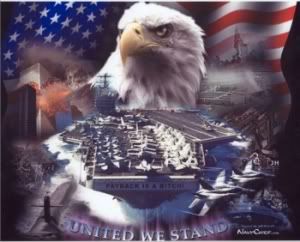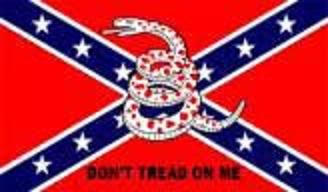The Night I Became An American
The Night I Became An American
By Lee Harris : BIO 16 Mar 2006
I became an American when I was forty-nine.
No, I did not become an American after immigrating from another country, passing tests, and taking an oath of loyalty, as millions of other Americans have to become Americans. My people were born here, and as far back as any of them could remember, their people had been born here as well. They were farmers, and like most farmers, they were convinced that they had sprung up from the soil, like corn-stalks. No, I became an American during the course of a conversation that I had on a night train from Innsbruck to fabled Vienna.
Across from me, in the compartment I was riding in was a young Austrian. He noticed that I was reading a German magazine, and we began a conversation, half-German, half-English, in which I explained to him that I had never been to Vienna before, and how excited I was at the prospect of seeing the city that I had so often read and dreamed about. I started off by explaining my passion for the great nineteenth century Austrian composer, Anton Bruckner, a farm boy whose majestic symphonies I had long regarded as one of the pinnacles of human achievement. Yes, my traveling companion, being Austrian, knew about Bruckner. Then I asked the young man if he had been to St. Florian, the Catholic monastery where Bruckner often played the organ, improvising out of his head — like a jazz musician — great cathedrals of sound, and whose earthly remains lie embalmed in a crypt directly beneath the organ itself. But, much to my puzzlement, the young Austrian did not seem to know about St. Florian: he said he had never heard of it.
snip
After so much musical and literary seriousness, my traveling companion explained to me the litigious history of the famous Sacher Torte, one of Vienna's miraculous pastry confections. Then, while he was on the subject of food, he looked at me and asked with a laugh: "What do you Americans do when you go to a foreign city? Do you only eat at McDonald's?"
The laugh had a mocking and smugly superior edge to it; and, like the question itself, it disconcerted and befuddled me. Being a good American, I expected him to break out into a grin and say something like the German equivalent of, "Oh, I'm just joshing you." But he didn't. It was embarrassingly obvious that he was quite sincere. After all, where else would we Americans eat in a foreign land except McDonald's? Isn't that all we eat at home?
Suddenly I realized that to my young Austrian companion, it made no difference whether I knew Bruckner's symphonies backwards and forwards; it mattered not in the slightest that I could appreciate the poetry of Grillparzer in the original German. I was an American, and, therefore, I had to be the kind of person who, when in a strange land, would make a bee-line to the closest McDonald's, out of fear of tasting the food of foreigners.
More @ http://www.tcsdaily.com/article.aspx?id=031606C
It has been my experience that people in other nations or those same people in America will look for a subtle or not so subtle means of putting Americans down. Like we're too big for our breeches or some such in that they try to take the 'Mickey out of being American'.
I use to rise to the bait like a frisky trout. I no longer do that, instead I use a flippant sarcasm like. "Yeah we eat at Mickey 'D's'. Where do y'all eat at the local fly blown market or do you eat your goat raw."
You have to tailor your response to what nationality you're dealing with and what you know about their country.
























<< Home